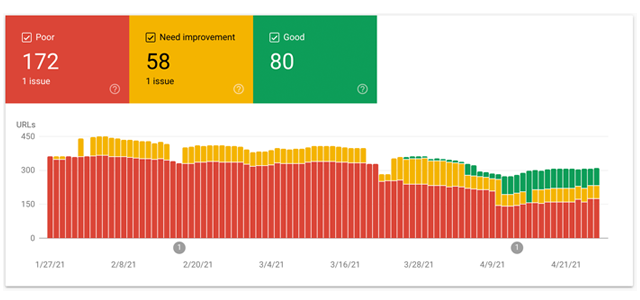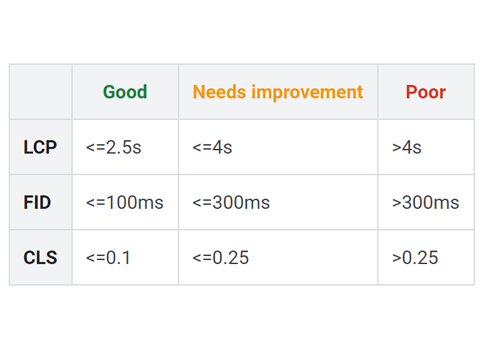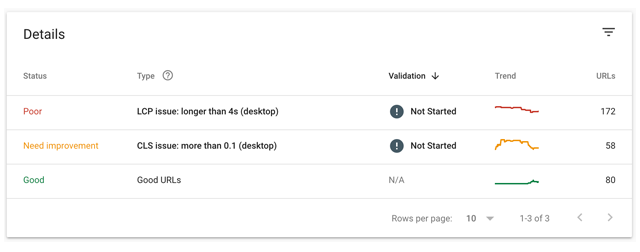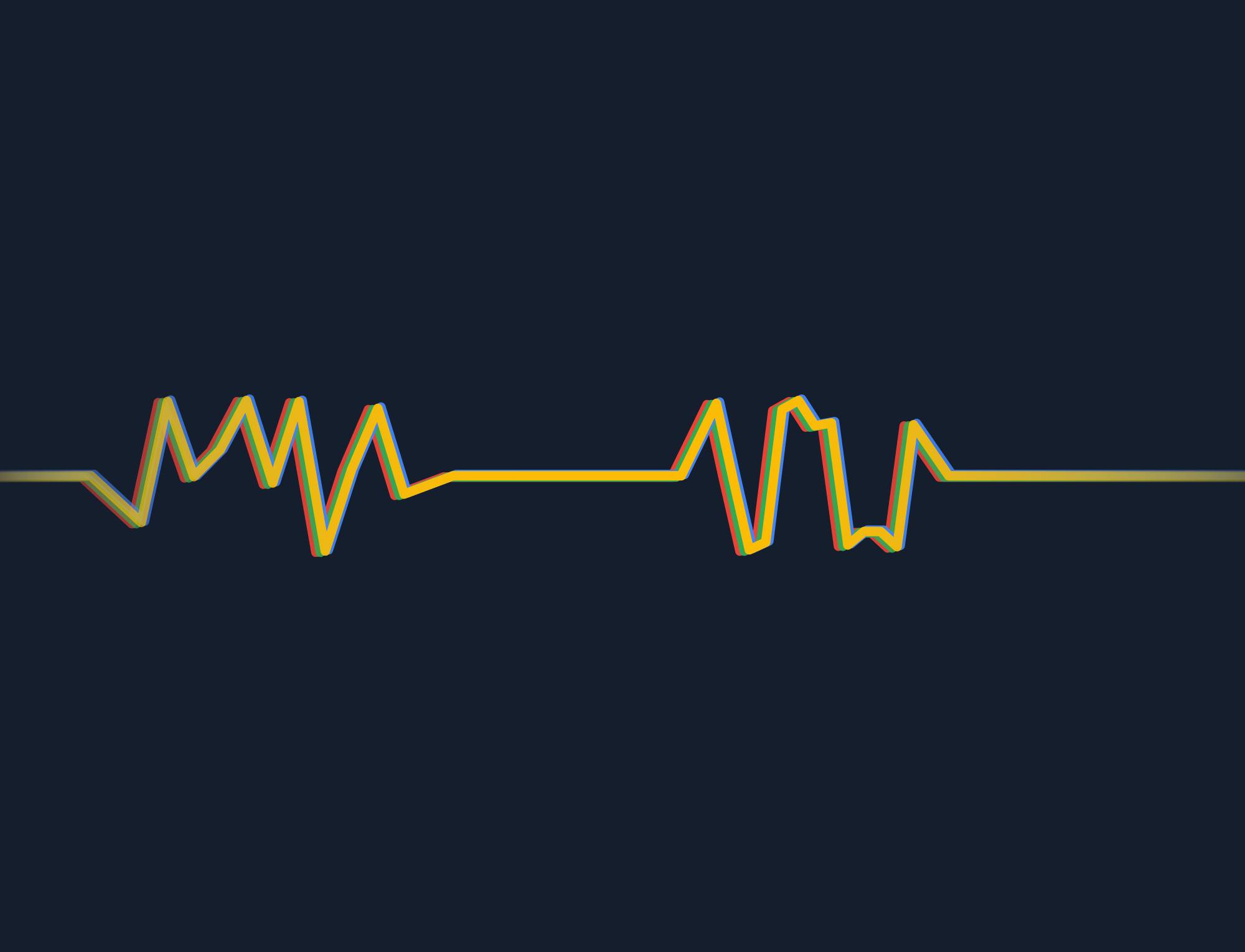Searching for Vital Signs
Google's May 2021 algorithm change will result in Core Web Vitals beginning to impact the organic search rankings of hotel and travel websites, among others. In this article we establish what they are, why Google cares about them and how they're measured. But most importantly, we discuss what you can do to ensure your website continues to rank well. Vital.
What is Google changing in their next update?
In short, Google is introducing additional User Experience signals into the way it evaluates a website page. These signals are grouped under Google’s 'Core Web Vitals' measurements and relate mainly to how a web page downloads and becomes ready for a visitor to interact with. This change will become part of Google's ranking algorithm in May 2021 so the time to prepare is now.
Will this affect my hotel website rankings?
Core Web Vitals will become part of the many measurements Google uses to rank a particular web page. Therefore, the change could potentially lead to increased or decreased rankings. Or, of course, they could stay the same. How's that for a non-committal answer?
The truth is that Google has stated publicly that page relevance remains the number 1 factor influencing SEO ranking:
“Our systems will continue to prioritize pages with the best information overall, even if some aspects of page experience are subpar. A good page experience doesn’t override having great, relevant content,” Source
So the good news is, this change should not affect current strong rankings, such as for those searches that include your brand name as well as others your hotel website has strong relevance and good engagement for currently.
That said, this algorithm change brings fresh opportunities. Core Web Vitals are more likely to interplay with other Google algorithm signals for searches Google is less sure of. For example, where its algorithm may wish to experiment on what site to rank ahead of others to test relevance and click engagement.


So, what exactly are 'Core Web Vitals'?
Here comes the science bit. The 3 'Core Web Vitals' metrics relate to Page Experience factors; page loading, page responsiveness, and page visual stability. Google measures each of these metrics for pages on your website and denotes a status of 'Poor', 'Needs improvement' or 'Good' against each. It's a little like being back at school - must try harder!
Using our Hotel Benchmark technology we have crunched data across several hundred hotel and restaurant pages to find the average Core Web Vital scores for such pages. Each measurement and our results are summarised below:
1. Largest Contentful Paint (LCP)
In simpler terms, this measures the loading speed of a page’s largest piece of content as it downloads into the browser. For example, this may be your home page header image, or any hotel video used on the page.
If this loads within 2.5 seconds, Google marks the page as 'Good'.
If it takes 2.5 - 4 seconds it is marked: 'Needs Improvement'.
And if above 4 seconds it is marked: 'Poor'.
We have found that for a typical Hotel or Restaurant Page the LCP score is around 2.81 seconds. So, this just crosses into the 'Needs Improvement' score. So, with a little work, hoteliers may well get a gold star 'Good' status.
2. First Input Delay (FID)
This measures responsiveness i.e., the delay that occurs when a user first interacts with the page and their desired action is confirmed. For example, the time taken from a click on the book button to seeing the check availability form appear. As you can imagine, Google has no time for tardiness here.
- Google measures anything up to 100 milliseconds as 'Good'.
- Between 100 - 300 milliseconds: 'Needs Improvement'.
- And above 300 milliseconds: 'Poor'.
The majority of Hotel and Restaurant pages we tested from Hotel Benchmark showed a fast response with FID scores around 17 milliseconds. This is well within Google’s 'Good' rating.
3. Cumulative Layout Shift (CLS)
This measures visual stability, how often a visitor to your website sees an unexpected layout shift on your page and is distracted.
For example, your customers may be about to click a 'book' button… only to see that move either as the page continues to download or another page element moves into place, so they must move their finger to relocate the book button. You'll have experienced this yourself no doubt - never fun to click and miss! This unexpected move of the button or other page element, and how often it happens is what CLS measures.
Google evaluates this using a movement metric:
- Anything between 0 and 0.1 is 'Good' (where 0 means no shifting).
- Between 0.1 - 0.25 is marked as 'Needs Improvement'.
- And above 0.25 is 'Poor' i.e., page shows a lot of movement when downloading.
We have found that for a typical Hotel or Restaurant Page the CLS score is around 0.16 so we as an industry 'Need Improvement' if we're to get on Google's 'Good' side.
Where can I find the 'Core Web Vitals' scores for my hotel website?
Your Core Web Vitals report is included as a section in your Google Search Console report. This is also part of a new 'Page Experience' report within Google Search Console that measures other Web Vitals such as Security, Mobile Usability etc.

What can I do about 'Poor' scores?
We recommend all URLs denoted 'Poor' are monitored. If you're continually seeing significant issues with LCP, FID and CLS then this should absolutely be investigated to avoid any negative impact upon your organic rankings.
We would initially advise running your website through Google's PageSpeed Insights report tool and discussing the recommendations with your web developer. Recommendations from this report range from ensuring all images are size optimised and have dimensions added, removing unnecessary code and implementing web server efficiencies – all of which will help improve your Core Web Vitals scores and move your site towards the coveted 'Good' statuses.
In Conclusion
We invite you to use our benchmark data above as a reference for your hotel website Core Web Vitals scores. Keep in mind that Google has stated quality information and content relevance for searches is still the number 1 ranking factor for hotel SEO.
To ensure your hotel always has the edge on competitors we would recommend monitoring your Core Web Vitals report on a regular basis and reviewing any recommendations outlined in Google tools such as PageSpeed Insights. A discussion with your web developer to advise on which recommendations are quickest and easiest to configure is also recommended.
Page Experience measurements are expected to grow in importance so now is the time to gain the advantage and prepare your hotel website.
Need support with SEO for your hotel's website? Let's chat.







